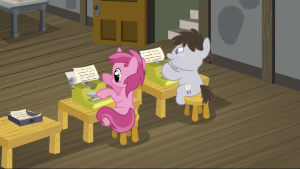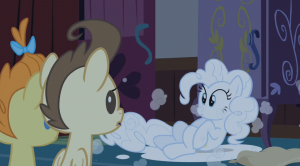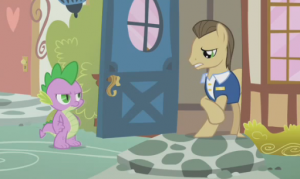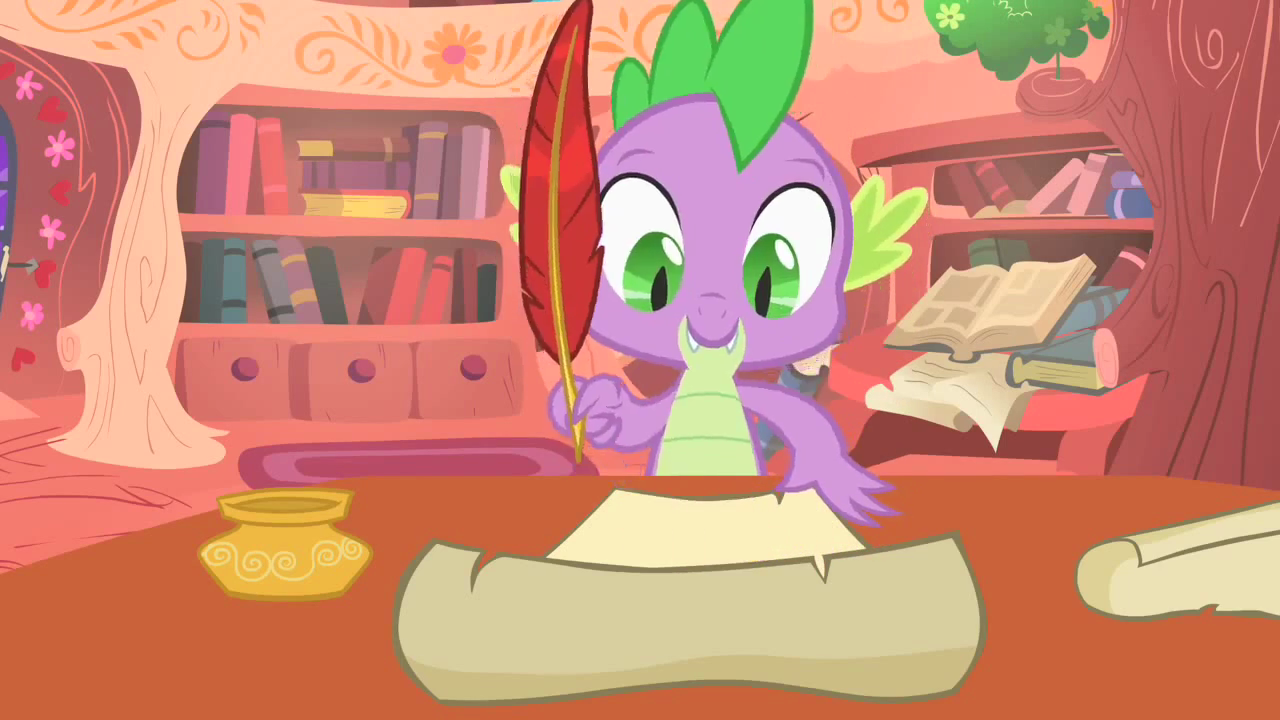Posts Tagged "creative writing"
Reading Chinua Achebe Part 1: High School
So like many people I learned about the death of Chinua Achebe through Facebook, and then confirmed it with Wikipedia.
I’ve only read three things by Achebe: Things Fall Apart, a short story I hated and don’t remember, and some essays that gave me mixed feelings.
Things Fall Apart is one of my “which books had a profound impact on you” books. I’ve read it about 4 times. The only long form piece I’ve read more is Shakespeare’s “Hamlet.”
High School: Okonkwo was me. Full of rage and ready to pounce on anything that would give me the opportunity to fuck it up, verbally or physically. I once had a place of status among my friends, but I learned what depression is and began questioning my faith in God. This was around the time many of my Catholic friends were going through confirmation. I talked with them hoping that they could help me with my crisis of faith, which I don’t know if any of you have had this before, but it hurts. But my questions were echoed to members of my friend’s churches, and they were told that I was “the devil trying to lead them from the path of Christ.” I wasn’t the devil, but I was burning into impotent ash. I was a kid who was lost, confused, and in pain, but I guess that’s just as dangerous to people whose faith is no stronger than wet newspaper.
Religion had seemed to take away all of my friends. My best friend who taught me how to make inappropriate jokes decided that he was going to become a priest. And apparently one who wishes to be like Christ cannot hang out with sinners.
My grades were falling. Nothing made sense. I was fighting with my family, friends, enemies, strangers… everyone was my antagonist. The people who understood me seemed far away. They weren’t in the honors classes. Yet this fucking book understood. The people I skated with understood. They appreciated that I was the voice of reason while at the same time down to punch someone in the face. My English teacher understood and came to my rescue when things got out of hand (Forgive me, but I’m not ready to tell that story yet).

“I’m not violent. I’m just teaching a lesson about not being a punk-ass bitch to a tactile-kinesthetic learner.” -Adolescent Sharif
I was a slow reader, still am. I needed longer with the book before returning it to the library. My English teacher knew that usually I would just prematurely surrender the book. This time I wanted to finish it. My English teacher was understanding. The best English teachers are. I think this is why Holden trusts the English teacher in Catcher in the Rye. This is why the written word won’t die.
I went to New Mexico with my mom for a few days. My mom told me to use this as an opportunity to relax but also catch up on the school work that had seemed too pointless and overwhelming during my state of depression. I took Things Fall Apart with me. The TSA opened my bag, because one of their sensors said my public school textbooks had suspect chemicals, which were later cleared as not being a bomb. I told my English teacher about this, and she told me to throw the book away. I told her that the book seemed just fine. She then told me to keep it and pretend we had to throw the book away. Then she pulled out a little card with student’s names and book titles. Next to mine she crossed out the words Things Fall Apart. It’s on my bookshelf, just behind my green screen.
Reading Chinua Achebe Part 2: Community College
Read MoreThe Not Completely Obsolete Typewriter
It’s been awhile since I had originally written about the stupidity of the typewriter. Years have passed, and I still think it’s dumb for a writer to try to use it in order to convey some sort of personal image as being writerly. However, when I attended a workshop in the home of poet, mystery writer, and educator John Brantingham, he presented an argument that typewriters weren’t completely useless.
In fact this argument was compelling enough to make me start actively seeking out typewriters in antique shops. Although, I still haven’t found a cheap one that isn’t at least partly, if not completely broken.
Brantingham has two small, cute, purely mechanical typewriters in his home in addition to his computer machine. We had taken a break from his lecture on novel writing and discussion went to the typewriters. I mentioned my blog inspired by UCI students who were impressed by some poet who typed on a typewriter. They didn’t think he was an impressive poet because of his poetry, but because he typed his poems on a typewriter (the “real” way).

“I thought I could fool editors by typing my poems in American Typewriter, but when I got a rejection, I knew it wasn’t working.”
Although Brantingham would jokingly deny ever having thought out a thing in his life, everything he ever says always seems as though a careful amount of time and critical thinking had gone into it. Maybe it was just that his words always seem free of bullshit, which sets a very high standard for a creative writing teacher. Many of them have their snake oil that they buy into, in the worst of cases that snake oil destroys writers. “Destroy” can mean innumerable things.
“You know, the great thing about typewriters is that you can’t go back and edit.” This solves the problem of writers going back through their work and tinkering as they go, a common problem.
I had this problem in the past and considered a typewriter to force myself out of it. However, when I thought of using my parent’s electric 1000watt motorized Snorlax sized typewriter, I just thought it would be easier to just be a terrible writer (the kind that splits infinitives apparently).
Brantingham told me that I should buy a cheap, small, purely mechanical typewriter which would be built to last forever, and it should only cost me about $25. To be fair the last time I went antiquing in Pomona, the cheapest I found was about $35 and most of the ones under $100 were mostly just broken beyond explanation of why they weren’t in the trash. Although, I think he said something about getting one made around 1920 while the ones I looked at were 1960’s. I don’t really remember, sorry. Also he’s probably better at antiquing than I am. Also I only went to like five places.

Antiquing? Is this a CKY/Jackass reference joke using a scene from My Little Pony? Yes. Eclecticism is something I pride myself on.
I told Brantingham, “Well, you still have to retype it.” I mean come on! The digital world is sucking us all into it (Digimon was right). Brantingham had answers for this. He has answers for everything. I fear the day he doesn’t have an answer the way people in nowhere towns fear terrorists might attack their local Wal-Mart.

“I realized how dependent the Nowheresville, Kentucky’s economy is on the Wal-Mart, so now I am afraid to go to work in case there is a terrorist attack, like when they blew up the towers.”
He explained that typing your work all over again sentence for sentence and word for word will help you think critically about what you’ve written. It highlights syntax, word choice, and tense shifts as well as other problems. It’s perhaps the most in depth first edit you can get.
I think we all could benefit from retyping our work, but wait a minute. Couldn’t we just print it out? Why can’t I just use willpower to not edit?
Well, while writing you’re usually fighting a lot of different urges to do other things. Writing is hard, and you might want to do something less hard. Ron Carlson wrote an entire book about this aspect of writing. This method would take willpower which could be diverted to your not checking Facebook or going outside and getting some Taco Bell when you should be writing.

“The machine says you have just enough willpower to go 230 words before watching more low quality uploads of ‘Rocket Power’ on Youtube.”
That caption reminds me; the internet might be a good reason to invest in a typewriter.
Edit: Upon reading this blog, Brantingham explained to me the internet is the best place to buy typewriters. This blew my mind, because I just imagined shipping costs would be ridiculous. I guess typewriters fit into those “fits it ships” boxes.
Read MoreTypewriter < Almost Anything These Days
This is a blog I wrote a few years back (circa 2010) about the glorification of new writers who use typewriters. Although, I’ve slightly changed my opinions a little bit since then. Next time, I’ll address the benefits of a typewriter.
I’m under the impression that anyone who romanticizes a typewriter has never actually used one. They just romanticize it, because it was used by the Modernists and early Post-Modernist writers, whom everyone wants to grow up to be. (I’m assuming that they all used these. Frankly, a writer knowing how another writer got their story in typeface is as useful as a scientist knowing how Steven Hawkings gets his theories out of his talking chair and into books.) Somehow they think that the magic of obnoxiously loud and slow clicking banging of keys and blaring ring at the end of each line like an M1 Grand (Yeah, I have played a Call of Duty game) will somehow hyper-tune them into the literary ether.
The reason all the Modernists used a typewriter (I’m assuming) is that it was faster than writing everything by hand, and it was the latest technology of the time. When I write I cannot type my words out fast enough. My mind goes too quickly. So then I find myself trying to recreate that comparably perfect wording that first passed through my head. And this is on a laptop.
Look into the Modernist/occultist practice of automatic writing. Essentially it is where one person will dictate a story to someone else who would write it down. It was believed to be almost a channeling of something otherworldly. It requires quick notation, and I’m sure they’d use an MP3 recorder and a word processor if they had them.
The biggest reason that I’m against this idea that typewriters make you more of a “writer” is because they don’t help your writing. I would recommend writing on a PDA or a smart phone before I’ll recommend writing on a typewriter. They have spell check, grammar check, and now diction check. I don’t care how well you spell, how great your grammar is, or how perfect your typing is; it could be better. The computer provides you with your first edits. The typewriter provides you with a need for ribbons and white-out.

“Besides, real writers use quills” (obviously an update from the 2010 draft).
Also even though computers aren’t the most reliable things in the world, they aren’t thrown out of order from a cliched gust of wind. You can even e-mail your Word document to yourself in case your house burns down. No need for a fireproof safe (If you’re working on a typewriter and don’t have a fireproof safe for your yet-to-be-published work then you’re just tempting fate). That e-mail will even work as a poor man’s copyright (time stamped by a 3rd party and usable as evidence in court).
Now I can understand some reasons why you might use a typewriter. If you need candles, a glass red wine you picked up for eight dollars from the local CVS, and a typewriter in order to feel inspired, then more power to you. Or if you’re from the old generation and you’re more familiar with a typewriter then go for it. As long as stories get storied and poesy gets poesied. It doesn’t matter what gimmick you have to motivate you, but it doesn’t make you closer to the platonic ideal of the writer.
Next time, the real benefits of a writer using a typewriter!


